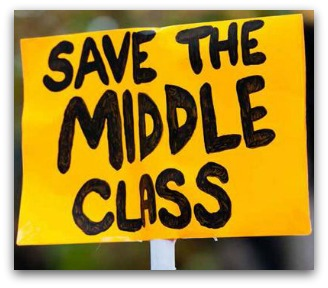The Axel Rudakubana Madness
Since the sentencing of the "Child Killer" as I will call him from here on in, I've seen commentators - including legacy media such as the Guardian - make claims that the Child Killer was an "unassuming child" until he was racially abused one pleasant summer and then his behaviour changed, laying blame towards some class mate who acted in a racially inappropriate way. Other commentators who advocate for children not to be a excluded from school - an admirable cause - state that they "feel sorry" for the Child Killer as so many opportunities to prevent this incident were missed. It is here that I will interject with my own personal experience. When I left the care system, at 9 years old, my family were rehoused in a predominantly black area in Leeds. We were not just one of the only white families in the area, but one of the reasons I was removed and placed in care was the neglect and abuse we as children experienced, partly driven by poverty, therefore we were also one of the poorest families in the flats. As a result of being the minority, the other kids could be mean about my poor circumstances, and at other times because of my not being black. Really unfortunate, but kids will be kids and see difference in my view. Therefore, I grew up in poverty, experienced challenges, including racial, went into care, and was excluded from school before I was addicted to heroin and sent to prison aged 17.
I have spent many years advocating for a more humane criminal justice system and certainly better supports for children who grow up in similar circumstances to me. I do NOT believe that life is a simple matter of individual choices, especially for children. When it comes to poor outcomes, I absolutely believe adverse childhood experiences and complex trauma matters and if we leave children to grow up in challenging circumstances, we risk producing environments that can create poor social, educational and health outcomes. However, although this means environments and social structures matter, I'm also a believer that individual crimes, on a particular day can not, nor should not be explained by wider macro level inequality. It is for this reason, that I personally find these "explanations" or presented "causal" factors for the Child Killers crimes and him taking the lives of vulnerable girls distasteful to say the least.
There seems to be some cognitive dissonance for many people with what we call "lived experience." Most of us, from my personal experience avoided the CJS and all adjacent to it like the plague. We often believed, rightly so that the CJS is limited at changing our behaviour, improving our circumstances and is an entity to be distrusted and harmful. However, when we mature, change our behaviour, step away from crime, we then proporte that when such awful crimes happen, the system and professionals within it are at fault, failing to call out the horrible Child Killer and contradictory claims that an event like that can be prevented by professionals who couldn't prevent our crimes. I remember staying away from school, avoiding social workers because they often weren't "like me" or others I spent time with. That's is how inequality can play out, and when I was up to no good, burgling houses, taking heroin or any other criminal matters, professionals needed to be as far away from me and my people as possible. So, if this was the case for small, lower level crimes, what on earth would this mean for the Child Killer? Would he be waiting with open arms for support and guidance when he was thinking about Mass Murder?
It feels to me that people are putting these narratives forward for their own purposes, to explain to everyone that they were really "good people" all along and their carnage could have been prevented. This may be the case for some, may not for others, but nevertheless, its a philosophical position to take up and can't be proven. I personally know I was a "good kid" in challenging circumstances. I don't need to justify the "why" but just explain that I matured and changed my circumstances as I got older. After 15 years of working in Youth Justice, it became obvious to me that children and young people commit crime for very different reasons - because they are all different. Different environments, different temperaments, different characters and different levels of empathy, etc. None of the offending I worked with can be explained by the care experience, poverty, school exclusion, psychological issues or mental health. Humans are complex, society is complex and therefore crime is complex, which is why we should avoid explaining incidents of criminality through simplistic narratives.
Returning to this little Child Killer, I don't think it's helpful for society, certainly not for his victims or even the Child Killer himself to lay responsibility at anyone but him. When people like him go the prison, they often need protection from other prisoners. If he or those like him came across my path or those I spent time with in prison, he would be at risk of being seriously beaten. Therefore, I ask a critical question; if those with the most lived experience would hurt someone who did what he did in Southport, why do so many commentators feel the need to defend him? If anyone needs defending, needs support, needs voice to make them aware we "care" about them, it's the community and the victims. It is certainly not the Child Killer from where I stand. Sometimes, maybe we have to accept that some people veer away from humanity and yes, we can learn from past mistakes to offer support and attempt to intervene early, but not getting that support should not lead us to a belief that the responsibility for such horrendous crimes lies at the feet of anyone but those who commit them!



Comments
Post a Comment